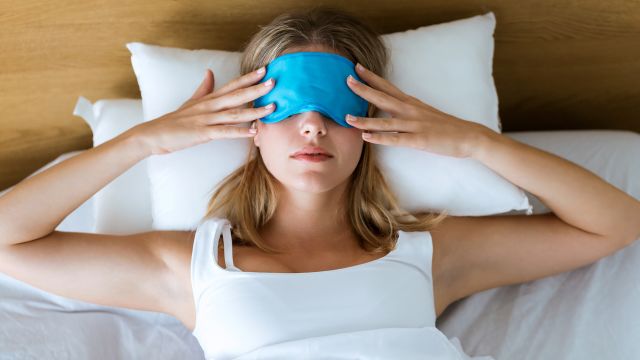Thyroid eye disease (TED) is a condition that affects some people with certain thyroid conditions. The most common thyroid condition associated with TED is Graves’ disease. When a person has Graves’ disease, abnormal immune system activity creates antibodies that attack and damage the thyroid gland. This causes the thyroid gland to become overactive and can result in a variety of possible symptoms. Some common symptoms of Graves’ disease include heat sensitivity, fatigue, weight loss, and irregular heartbeat.
When a person has TED, antibodies also attack the tissues behind the eyes—connective tissues, muscles, fatty tissues. As a result of this antibody attack, these tissues become inflamed and enlarged. This can cause the eyes to protrude or bulge from the sockets (sometimes described as the eyes having the appearance of staring). This inflammation can also cause pain with eye movement, a gritty feeling when blinking, and a variety of other symptoms.
Both Graves’ disease and TED can also interfere with sleep in different ways.
Thyroid disorders and sleep
Insomnia—an inability to fall asleep or stay asleep—is associated with Graves’ disease. Some symptoms of Graves’ disease can interfere with sleep or make it difficult to get enough sleep. These include:
- Night sweats
- Frequent urination
- Itching
- Muscle spasms and tremors
- Nervousness, anxiety, and irritability
- Heart palpitations
- Fullness and discomfort in the neck as a result of an enlarged thyroid
TED and sleep disturbances
While Graves’ disease and TED are related conditions, they are separate conditions. And TED can cause its own set of issues when it comes to getting a good night’s sleep:
- Discomfort. As mentioned above, TED can cause a number of uncomfortable symptoms. These can include pressure and pain around the eyes, irritation, gritty sensations when blinking, dry eyes, and excessive tearing—any of which can distract a person when they are trying to relax and drift off to sleep.
- Retracted eyelids. As TED causes inflammation, swelling, and damage to the tissues around the eyes, it can push the eyeballs forward and cause the eyelids to retract. This means a person may not be able to fully close their eyes, which can make it difficult to sleep and cause the eyes to become dry and irritated overnight.
- Distressing thoughts. TED is a stressful condition to live with. In addition to the mood changes that a person may experience as a result of having a thyroid condition, the visible changes TED causes to a person’s face can be very distressing. These thoughts may be difficult to put aside at night when you want to sleep.
Severe TED has also been associated with obstructive sleep apnea, a sleep disorder where a person stops breathing during sleep.
Improving your sleep
The most important thing you can do if you have TED is work with healthcare providers who have experience treating TED. The preferred approach to treatment is to work with a multidisciplinary team of HCPs that include ophthalmologists, endocrinologists, mental health professionals, and others.
There is no cure for TED, but there are treatments that can help manage and reduce the symptoms. In addition to following your TED treatment plan, there are also several strategies and treatments that your healthcare team may recommend to help you sleep better. These include:
- Taping the eyes closed at night and/or using protective shields, which can help prevent the eyes from drying out. This approach will be used along with lubricating gels, artificial tears, or ointments.
- Elevating the head of your bed, which can help reduce fluid accumulation and reduce swelling around the eyes at night.
- Establishing good sleep habits, such as going to bed at consistent times, putting away electronics an hour before bed, and keeping your bedroom at a comfortable temperature.
Because thyroid disorders and TED are a different experience for every person, it’s important to tell you healthcare providers about what you are experiencing, including the physical symptoms, how the condition is affecting you mentally and emotionally, and if you are having any difficulties with sleep.






